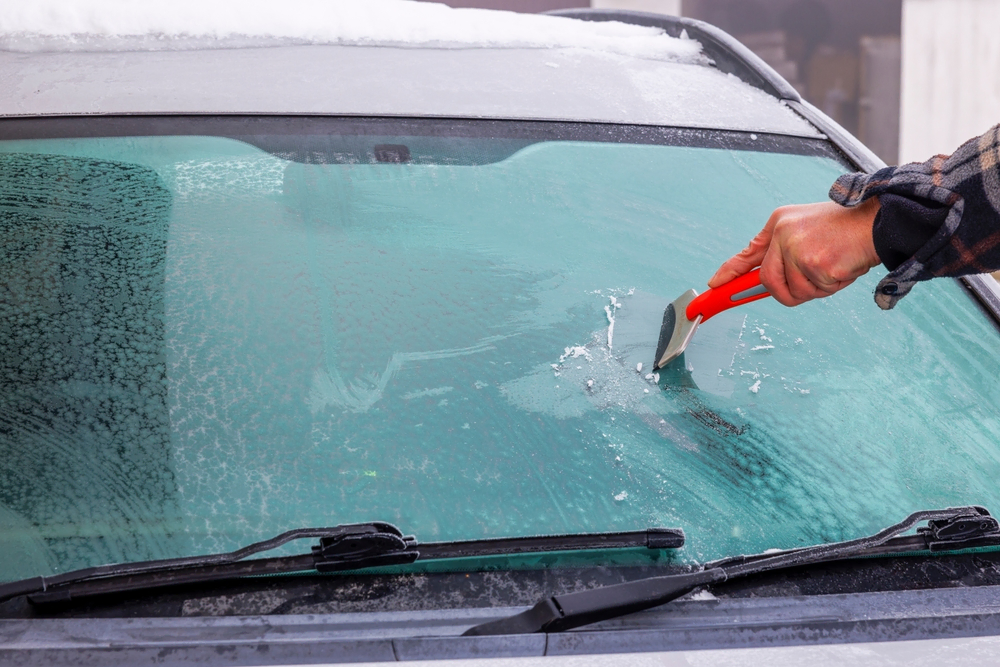
Driving in the Georgia winter can be a challenge, even for experienced drivers. Snow, ice, and sleet can make roads slick and dangerous, and snowstorms often reduce visibility. Besides taking some enhanced precautions, one good tip for all Georgia motorists is to make sure their auto insurance is up to the task if slippery roads or snow cause a mishap this winter.
In this article, we’ll provide some of our top tips for safe driving this winter.
1. Get Your Car Serviced Before Georgia’s Winter Weather Hits
As the temperatures begin to drop, it’s important to make sure your car is ready for the colder weather. One way to do this is by getting a winter service. During a winter service, your mechanic will check the condition of your battery, brakes, and tires. They’ll also top off your windshield wiper fluid and make sure your heater and defroster are working properly.
Taking these steps now can help you to avoid being stranded on the side of the road later. It’s a good idea to get your car serviced before Georgia’s winter weather hits because it can be more difficult to find a mechanic available during a busy season. By getting your vehicle serviced early, you can rest assured that it will be ready to handle whatever Mother Nature throws its way.
2. Clear Snow and Ice from Your Windshield, Windows, and Mirrors Before You Start Driving
When winter weather hits, it’s important to take a few extra minutes to clear the snow and ice from your windshield, windows, and mirrors before you start driving. Not only does this help improve your visibility for safer driving, but it also helps to prevent ice and snow from buildup on your car’s glass, which can impair your vision even further.
If possible, use a soft brush or cloth to avoid scratching the glass. And be sure to start with the windshield first, as this is the most important area of visibility while driving. By taking a few extra minutes to clear the snow and ice from your car before you hit the road, you can help keep yourself and others safe this winter.

3. Georgians Should Drive Slowly and Carefully on Wet, Slippery Roads
One of the most important things to do in winter weather is to drive slowly and carefully. Sudden stops and turns can cause you to lose control of your vehicle, and speeding increases the likelihood of an accident. It’s also important to give yourself extra time to reach your destination, as winter conditions can cause delays. Taking these precautions can help ensure that your winter driving experience is safe and enjoyable.
4. Use Your Headlights While Driving in the Georgia Winter
In the winter, it’s important to use your headlights while driving. The days are shorter, and the weather is often more treacherous, so it’s crucial to make sure you are as visible as possible. Headlights help other drivers see your car, and they also allow you to see the road ahead more clearly.
To that end, many states have laws requiring drivers to use their headlights when visibility is low. You may not get a ticket for it, but the Georgia headlight law requires headlights to be on anytime it is raining or any time when visibility is poor enough that you cannot see a person within 500 feet.
So remember: when in doubt, turn on your lights. It could mean the difference between a safe journey and a dangerous one.
5. Watch Out for Black Ice
Black ice forms when water from melting snow or rain freezes on the pavement, creating a thin and nearly invisible layer of ice. When driving on black ice, even a small change in speed or direction can cause a vehicle to lose traction and spin out of control. To avoid this, it’s important to be vigilant and watch for signs that black ice may be present. Look for shiny or wet spots on the road and areas where snow has melted but refrozen into ice.
6. Be Extra Cautious When Driving on Bridges and Overpasses
Be particularly cautious when approaching bridges and overpasses, as these tend to freeze before other parts of the road. This makes them more likely to be areas where you’ll encounter black ice. If you do encounter black ice on a bridge or overpass, try to stay calm and avoid sudden braking or steering. Instead, gently ease off the accelerator and let your vehicle slow down gradually.
7. Don’t Use Cruise Control on Icy Roads or When it’s a Rainy Night in GA
One of the worst things you can do is put your car on cruise control during Georgia’s wet or icy weather. When you’re driving on a slick surface, you’ll need to be able to respond quickly to changes in traction. If your wheels start to slip, you need to be able to ease up on the accelerator and make other adjustments. With cruise control engaged, you lose that flexibility and increase the risk of losing control of your car. So when the temperatures drop, take your foot off the pedal and stay alert. It might not be as convenient, but it could save your life.
8. Don’t Pass Snow Plows or Salt Trucks
In order to keep the roads safe, snow plows and salt trucks operate around the clock. But these vehicles need room to do their job effectively, so it’s important not to pass them on the road. Passing a snow plow can be extremely dangerous, as the driver may not be able to see your vehicle in the thick of the snow. For your safety and the safety of others, it is best to give snow plows and salt trucks plenty of room on the road.
9. If You Get Stranded in a Georgia Snowbank, Stay with Your Car and Call for Help
Stay put rather than trying to walk somewhere for help — it’s too easy to lose your way in a storm. And run the engine sparingly to conserve fuel, but crack a window to prevent carbon monoxide poisoning from the exhaust fumes. You should have an emergency kit in your car to help with staying warm and hydrated while you wait.
10. Remember That 4-Wheel Drive Does Not Make You Invincible
Drive cautiously, no matter what kind of vehicle you’re in! Even a 4-wheel drive vehicle can get stuck in mud or snow. Drive your 4-wheel drive vehicle the same way you would drive a sedan in these conditions. There’s no use taking chances.